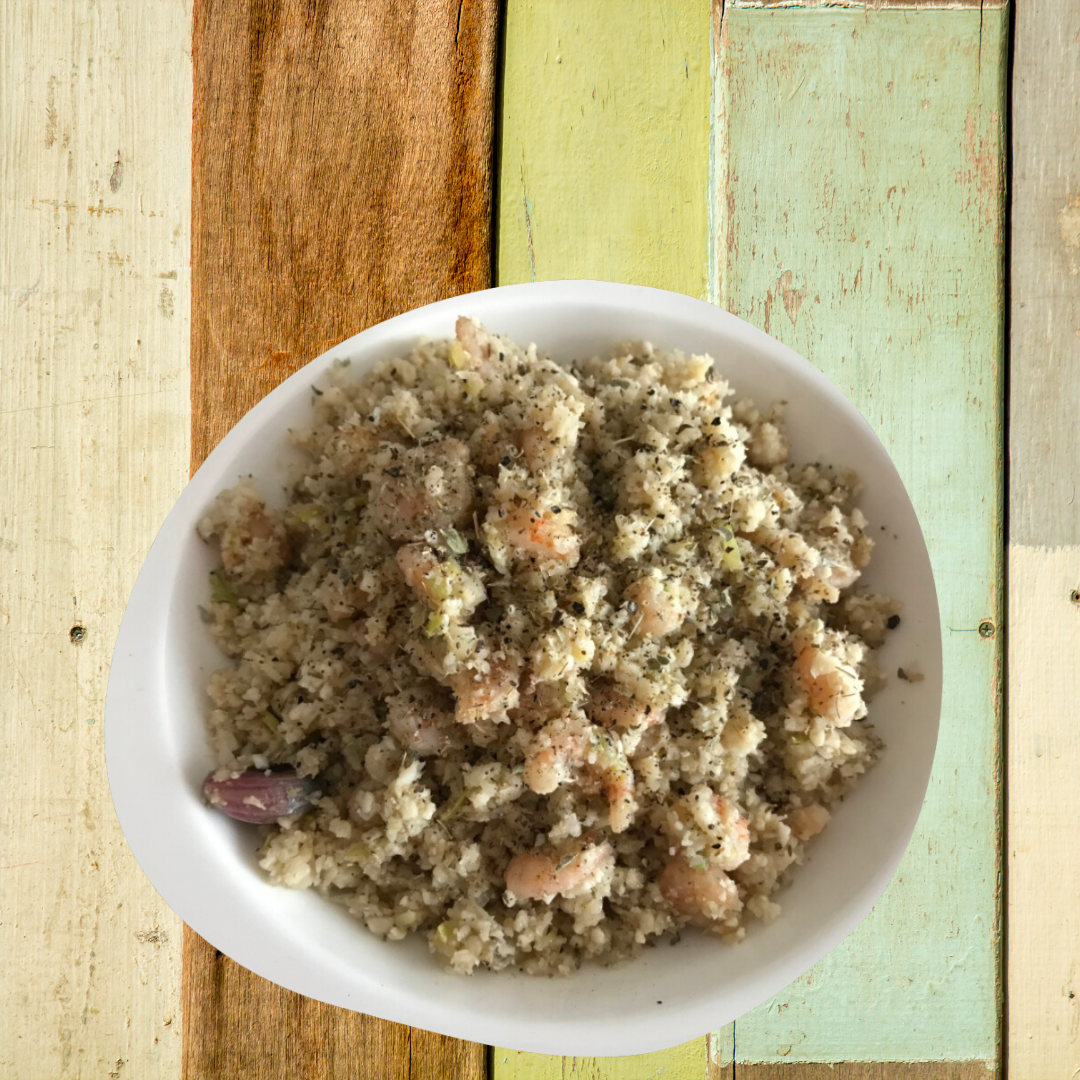Here is a great recipe made with cauliflower rice. An excellent and very nutritious substitute for rice, if you want to reduce your cereal intake. The recipe is suitable for paleo and ketogenic dieters. If you are vegan / vegetarian, you can adapt the recipe by eliminating the prawns, as it is equally delicious. Enjoy!
Ingredients for 4 people:
- 1 medium onion
- 1 small leek
- 2-3 medium cauliflowers or 1-2 packets of ready-made cauliflower rice (depending on the size of the packet)
- 6 cloves of garlic
- 6 green asparagus (optional)
- 1 packet MSC frozen peeled raw prawns
- 1 heaping tablespoon of coconut oil
- spices and salt to taste (e.g. parsley, basil, oregano)
Preparation:
For cauliflower rice you have two options, you can either buy it ready-made (it is sold in many supermarkets, usually in the deep-frozen section) or prepare it at home. To prepare it at home, simply chop 2-3 medium or 2 large cauliflowers, put them in a blender, add 2-3 glasses of water and blend until you have pieces the size of grains of rice. Then strain it through a sieve to remove the water and that's it.
For the recipe: chop the onion and leek into small pieces and fry them with the coconut oil over medium heat. Meanwhile, put the frozen prawns in a bowl of warm water to defrost. When the onion and leek are well browned, add the peeled and sliced garlic cloves (or whole if you prefer) and the asparagus cut into small pieces, no more than half a centimetre in size (the asparagus is optional). Sauté a little more and add spices to taste. Add the prawns and stir until they change colour from transparent to white. Finally, add the cauliflower rice and mix well. Turn the heat to medium-low and let it cook for about 10 minutes (or until you notice that it has a texture similar to normal rice). Do not add salt until the end, as the prawns are already salty, and you probably won't even need to add any extra salt. If necessary, you can add it at the very end.
Note 1:
Be careful if you have thyroid problems, as cauliflower belongs to the cruciferous family, which are vegetables considered "bocigenic". You can eat it from time to time, preferably cooked, but I do not recommend overdoing it.
Note 2:
The "MSC" label refers to sustainable fishing from free-ranging animals. This type of seafood is ecologically and nutritionally preferable to farmed fish/seafood, even if it is "organic". In a fish farm, the animals will often be fed with cereals or other foods that are not their natural food, while animals raised in their natural habitat are fed with what they really have to eat. Thus the meat from these animals will provide us with all the nutritional characteristics we are looking for when we eat them.

